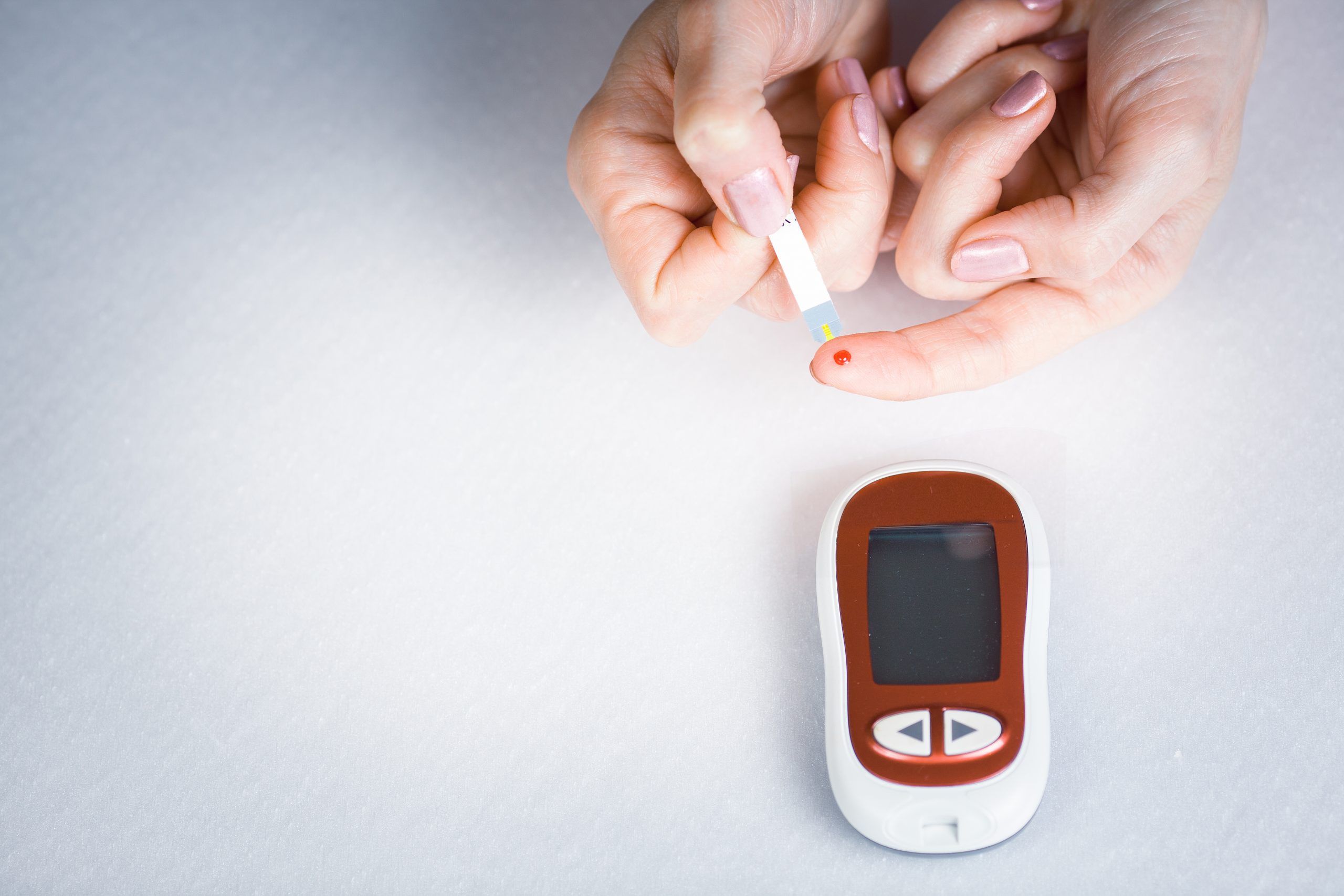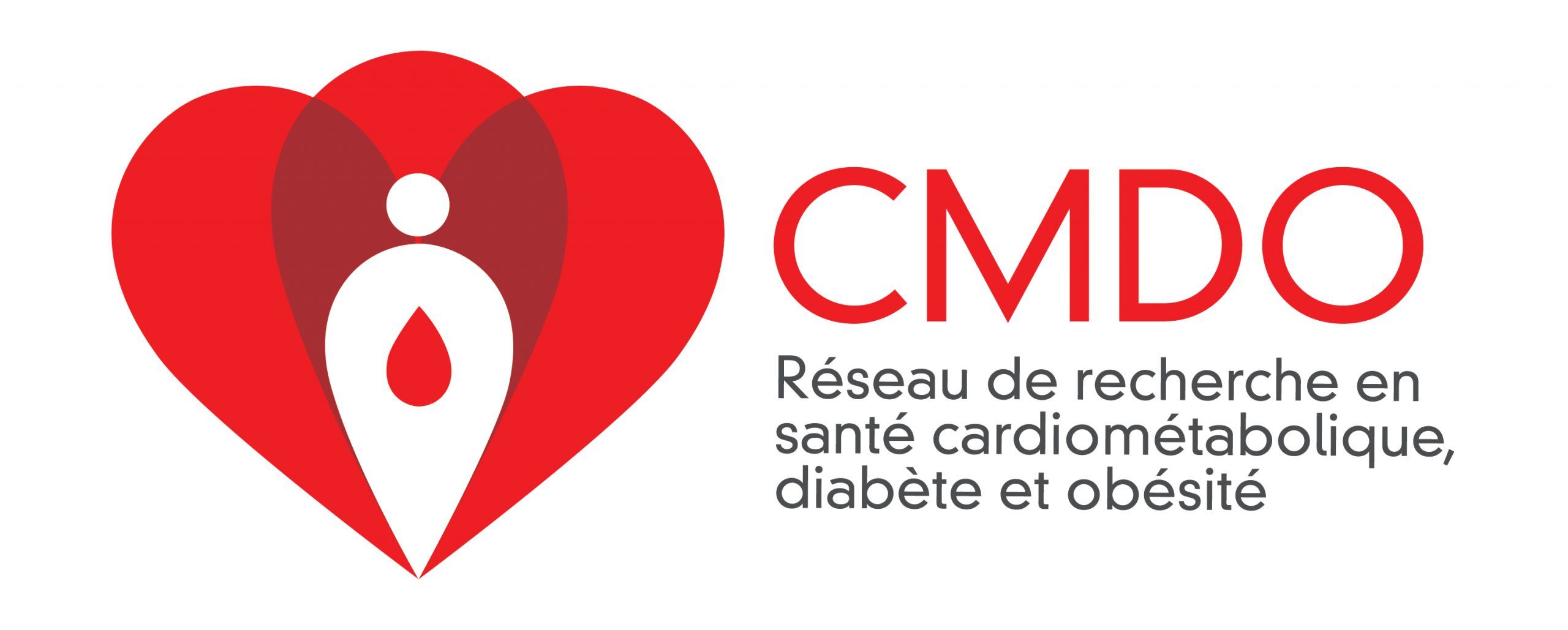Author: Linxi Mytkolli
Looking for collaboration in Cardiometabolic Health, Diabetes or Obesity (CMDO) research? Looking for or having a special expertise in the domain?
Looking for collaboration in Cardiometabolic Health, Diabetes or Obesity (CMDO) research? Looking for or having a special expertise in the domain?
The CMDO Network Interactive Networking tool for Research (INtR) was created for you. This tool, aimed at researchers and anyone else working in research, facilitate expertise research and establishment of collaborations between Quebec CMDO network members and local, national or international research expertises.
You will be able to
1) create your researcher profile to catalyze connections with others groups who are looking for your expertise or
2) to make requests for support to accelerate your search related to the CMDO themes. For more details, click here. All information is also available in French (Outil de Réseautage Interactif pour la Recherche – Outil RIR).
Do not hesitate to contact Lucien Junior Bergeron for more information – lucien.junior.bergeron@rrcmdo.ca
or visit the network website – www.rrcmdo.ca
Vous désirez mettre en place une collaboration en recherche sur la santé cardiométabolique, le diabète ou l’obésité (CMDO) ? Vous avez ou recherchez une expertise unique dans le domaine ?
Vous désirez mettre en place une collaboration en recherche sur la santé cardiométabolique, le diabète ou l’obésité (CMDO) ? Vous avez ou recherchez une expertise unique dans le domaine ?
L’Outil de Réseautage Interactif pour la Recherche (RIR) du Réseau CMDO a été créé pour vous. Cet outil, pour les chercheurs et quiconque qui travaille en recherche, facilite la recherche d’expertise et l’établissement de collaboration entre les membres du Réseau CMDO et les acteurs de la recherche locaux, nationaux et internationaux.
Vous pourrez
1) créer votre profil de chercheur afin de catalyser des connexions avec d’autres groupes qui sont à la recherche de votre expertise ou
2) faire des Demandes de support afin d’accélérer votre recherche en lien avec les thématiques CMDO.
Pour tous les détails, cliquez ici. Toutes les informations sont aussi disponibles en anglais (Interactive Networking Tool for Research – INtR).
N’hésitez pas à contacter Lucien Junior Bergeron pour de plus amples informations
– lucien.junior.bergeron@rrcmdo.ca ou
visitez le site web du réseau – www.rrcmdo.ca (le dépliant du CMDO est attaché à ce courriel).
La Charte d’accès du diabète de type 1 de T1International
T1International croit en un monde où tous les gens atteints de diabète de type 1 – peu importe où ils demeurent – ont tout ce dont ils ont besoin pour survivre et réaliser leurs rêves. L’organisation a pour mission de veiller à ce que les gens vivant avec le diabète de type 1 aient un accès adéquat à l’insuline, à des fournitures liées au diabète, à des soins médicaux et à de l’éducation sur le diabète. T1International effectue son travail au moyen d’efforts de sensibilisation, de campagnes et de collaboration avec des initiatives existantes, et également en soutenant les gens et les organisations sur le terrain qui tentent d’améliorer la vie des gens aux prises avec le diabète de type 1.
La Charte d’accès du diabète de type 1 de T1International a été créée afin de prendre position contre le révoltant manque d’accès à des produits essentiels qui permettraient de sauver des vies auquel font face des gens atteints de diabète de type 1 partout sur la planète. . Bon nombre de personnes atteintes du diabète de type 1 meurent ou souffrent de complications coûteuses parce que l’insuline de même que les fournitures et l’éducation associées requises pour gérer leur diabète demeurent hors de leur portée. Cette Charte servira à soutenir les efforts de sensibilisation portant sur le diabète de type 1 à l’échelle mondiale. Elle montrera au monde que beaucoup de voix s’unissent en soutien à ces droits. Elle pourra de plus servir à influencer l’action des gouvernements et des organisations afin que les politiques soient modifiées et que les droits des personnes atteintes du diabète de type 1, priorisés.
En signant la Charte, vous convenez que chaque personne atteinte de diabète de type 1 a le droit à ce qui suit :
- Le droit à l’insuline
- Le droit de connaître sa glycémie
- Le droit à l’éducation au diabète
- Le droit aux soins médicaux
- Le droit à une vie sans discrimination
Pour en savoir plus et signer la charte, veuillez vister le
https://www.t1international.com/get-involved/
The T1International Type 1 Diabetes Access Charter
 T1International believes in a world where everyone with type 1 diabetes – no matter where they live – has everything they need to survive and achieve their dreams. This organization works towards ensuring people with type 1 diabetes have adequate access to insulin, diabetes supplies, medical care and diabetes education. T1International does this by raising awareness, campaigning and collaborating with existing initiatives, and supporting individuals and organisations on the ground that are working to make life better for people with type 1 diabetes.
T1International believes in a world where everyone with type 1 diabetes – no matter where they live – has everything they need to survive and achieve their dreams. This organization works towards ensuring people with type 1 diabetes have adequate access to insulin, diabetes supplies, medical care and diabetes education. T1International does this by raising awareness, campaigning and collaborating with existing initiatives, and supporting individuals and organisations on the ground that are working to make life better for people with type 1 diabetes.
The T1International Type 1 Diabetes Access Charter was created to take a stand against the outrageous lack of access to life saving essentials that people with type 1 diabetes around the world face every day. Many people with type 1 diabetes are dying or suffering expensive complications because insulin, and the supplies and education to manage diabetes, remain out of reach. This Charter will be used to bolster type 1 diabetes advocacy efforts worldwide. It will show the world that there are many voices united in support of these rights. It can be used to influence the actions of governments and organizations so that policies can be changed and the rights of people with type 1 diabetes can be prioritized.
By signing this Charter, you agree that everyone with type 1 diabetes has the following rights:
- The right to insulin
- The right to manage blood sugar
- The right to diabetes education
- The right to healthcare
- The right to live a life free from discrimination
Read more and sign the charter by visiting this link:
https://www.t1international.com/get-involved/
Congratulations to Dr. Gillian Booth for having her research selected by the American Heart Association’s Lifestyle and Cardiometabolic Health Council as one of the most impactful papers of 2016.
Dr. Booth is a Scientist in the Centre for Urban Health Solutions (C-UHS) in the Keenan Research Centre located at the Li Ka Shing Knowledge Institute of St. Michael’s Hospital in Toronto. She is also an Adjunct Scientist at the Institute for Clinical Evaluative Sciences (ICES) and an Associate Professor in the Department of Medicine and Institute of Health Policy, Management and Evaluation at the University of Toronto. Dr. Booth’s research focuses on environmental, socioeconomic, and health care factors influencing the risk of diabetes and related chronic diseases. A major thrust of her research focuses on effects of the built environment on health, which is supported by a 7-year CIHR Foundation Grant.
Dr. Booth and her team published a highly impactful research paper entitled “Association of neighborhood walkability with change in overweight, obesity, and diabetes” in JAMA. This study found that urban neighbourhoods with highly walkable urban designs had a stable prevalence of overweight and obesity and declining diabetes incidence during a 12-year period (2001-2012). Throughout this period, rates of each of these conditions were significantly lower in these highly walkable neighbourhoods compared with less walkable areas, in which levels of obesity had continued to increase.
For further information on this research, please see: http://jamanetwork.com/journals/jama/fullarticle/2524191
Trillium Primary Health Care Research Day! (Wednesday, May 31, 2017)

This event is an opportunity to share your primary health care relevant research in a welcoming and constructive atmosphere. The conference will expose participants to the latest in peer-reviewed primary health care research in Ontario. Hosted by the INSPIRE-PHC Program.
Click on the button below for more information:
Congratulations Dr. Paul Fernyhough!
Congratulations Dr. Paul Fernyhough for publishing your paper, Selective antagonism of muscarinic receptors is neuroprotective in peripheral neuropathy, on the Journal for Clinical Investigation!
Dr. Paul Fernyhough is a Principal Investigator in the Clinical Trials and New Therapies Goal Group at Diabetes Action Canada. Dr. Fernyhough has completed his B.Sc. degree in Biological Sciences at the University of Essex and performed his PhD in biochemistry at University of Sheffield in the UK. He also performed postdoctoral research at Colorado State University, Kings College London and as a Wellcome Trust Postdoctoral Fellow at St Bartholomew’s Medical College. Dr. Fernyhough subsequently worked as a fully tenured lecturer in the School of Biological Sciences (now the Faculty of Life Sciences) at the University of Manchester. Dr. Fernyhough’s general research interest is in the cell biology underlying neurodegenerative disorders of the peripheral and central nervous systems.
His recent paper on the Journal for Clinical Investigation focuses on the identification of a novel endogenous pathway in adult neurons that regulates nerve fiber growth. Normally this pathway suppresses growth of nerve fibers but by the use of antagonist drugs against a key receptor in the pathway, fibers can be released from this constraint and permit higher levels of growth. This allows specific drugs to drive nerve fiber regeneration and repair in disease states such as diabetes and chemotherapy where there is irreversible nerve damage. An exciting aspect of the work is that the drugs being used are old drugs for new uses. These drugs have been used in humans for over 20 years with no serious side effects. This class of drugs is currently being used to treat myopia in children, highlighting the excellent safety profile of these compounds. Therefore, phase 1 trials are expected to progress smoothly; phase 2 trials have been arranged and are already funded for 2017. Also, an interesting component of this drug development work is that these drugs can be applied in a topical formulation. This approach restricts side effects and permits application via patch or cream. Commercialization is proceeding rapidly with a company, WinSanTor Inc, supporting drug development through extensive NIH funding and preparing for clinical trials in 2017-2018.
To read more about Dr. Fernyhough’s paper, please click here: http://www.jci.org/articles/view/88321
Once again, well done Dr. Paul Fernyhough. Diabetes Action Canada wishes you all the best in your future endeavours!
The impacts of being formally enroled with a GP on continuity and integration of care: Evidence from a comparison of QC and BC
Diabetes Action Canada is a proud partner with the research project “What are the impacts of being formally enroled with a GP on continuity and integration of care? Evidence from a comparison of Quebec and British Columbia”
This research project brings together patients, providers, decision makers and researchers to provide a better understanding of how patient enrolment with a GP affects patient experience, continuity and quality of care, and policy-relevant outcomes that are important for the sustainability of our health care systems. Special attention is paid to the experience of diabetic patients.
Quebec and British Columbia have already implemented patient enrolment programs. These programs are designed quite differently; this project focuses on these two provinces. Research team members will talk to patients and family doctors to hear about their experiences and their priorities. They will also use health care data and statistical methods designed to evaluate policy interventions to understand what patient enrolment means in terms of quality and continuity of care. Results from this research project will advance our understanding of primary care and healthcare policy in the management of diabetes. This will also, ultimately, lead to advancement in understanding other chronic diseases.
Funding:
CIHR SPOR Network, Michael Smith Foundation, Quebec Ministry of Health, Réseau-1 QC, McGill University, Centre de recherche de l’Hôpital Charles LeMoyne.
Nominated principal applicant: Erin Strumpf
Principal Knowledge Users:
Antoine Groulx,
Heather Davidson
Principal applicants:
Laurie Goldsmith,
Christine Loignon,
Kimberlyn McGrail
Patient Partner :
Amélie Bouchard
Co-applicants :
Maxine Dumas Pilon,
Catherine Hudon,
France Légaré,
Marie-Jo Ouimet,
Ruth Lavergne
Nouveau bulletin d’action diabète Canada – novembre 2016
L’année a été des plus exaltantes pour Action diabète Canada! Découvrez nos activités et événements récents dans le tout premier bulletin d’Action diabète Canada, publié en novembre 2016.







